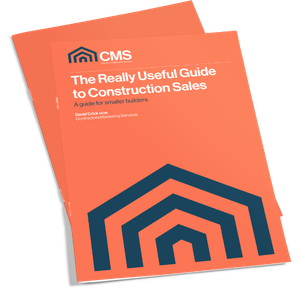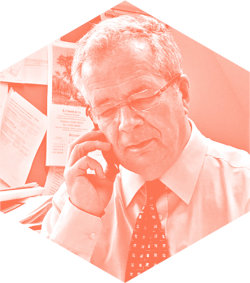Any sales person can make a call. It’s the ones that follow-up properly that deliver the goods time after time. It’s not difficult, but it pays to be systematic and persistent. There’s a general rule in sales that it takes around seven contacts to land a tender. Nobody is going to hand it to you after a cold call. It’ll take an initial phone conversation, an email, a follow-up call, a letter with case studies, a possible meeting, and so on.
Remember, sales is about relationship building.
You need the architect or the client to trust you enough with a significant budget, and they might never have heard of you before. So build trust with little steps. In that first call, tell them that you will follow up by email. When you do, you’ve demonstrated that you’re a person that keeps their promises.
Also in that first call, ask when they want you to call back. It’s rare for anyone to tell you not to. Instead, they’ll give you their most convenient time. Make a note and call back then. It’s better for them, and you’ll catch them when they have time to talk. It’s better for you too, because it saves you a wasted call or another answerphone message. And here’s the secret power of a planned phone call: it shows that you’re a person who keeps to time. It’s such a little thing, but it’s significant. Not showing up on time and not getting things done when you said you would are such common gripes about builders! Just by timing your call back, you’ve set yourself apart.
Each small step you can take like this will be a step ahead of your competitors.
If you’re going to do this with every contact, it should be obvious that you’ll need a system. You can soon end up with hundreds of contacts to keep track of, and this isn’t going to run on post-it notes and a whiteboard. Invest in a sales admin system and an online contact management database. This will help you to track all your conversations. When you phone someone, you can bring up notes on previous calls and have all the specifics of the project to hand.
Once your system is up and running, you’ll be able to review the last conversation before you call, and update the notes afterwards for next time. Keep notes brief and to the point, so that you spend more time on the phone and less on data entry.
As well as the details of the job, you might want to make occasional entries about the person you’re talking to – little personal things about them. They might mention they like sailing for example, or that they’re just in from walking the dog. If it sounds important to them, make a note and you can ask about it when you call again. Always keep calls professional and don’t force it, but a quick question about something meaningful for them will build rapport. (It certainly beats the bland introductory comment about the weather that opens so many conversations!)
This isn’t about gathering data on a person in order to win them over. It’s respecting them as individuals with their own lives and interests.

